Testimonials from former students
- Céline Aulagnier, Decision-making Consultant and Data Analyst
- Hugues Chanteloup, Innovation Financing Consultant
- Justine Mollen, Project Manager
- Yaovi Florentin Ametonou, studying for a PhD in Montreal
- Alain N'Ghauran, Consultant Economist
- Carolina Guevara, Economics Lecturer
- Rémi De Almeida, Innovation Financing Consultant
- Lisa Genévrier, first-year master’s degree student at Paris Dauphine University
- Nordancia José, Strategic Monitoring Officer at Nomination (Paris)
- Kevin Brun, Project Manager ‘Action Cœur de Ville’, Montbrison
- Philippe Cachard, Director of Economic Development, Employment and Training, Saint-Étienne Métropole
- Pierre Pham-Trong, Financial Auditor at Mazars
- Ruth Soufflet, Regional Director
Céline Aulagnier, Decision-making Consultant and Data Analyst
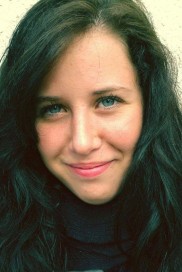 After obtaining my bachelor’s degree in economics and management, I still didn't know what career I wanted to aim for. But I liked economics, so I decided to take a Master’s of Economic Intelligence and Innovation Management, because it offered broader career prospects than other programmes. Thanks to my internships and the fact that I particularly enjoyed certain courses such as data mining and relational databases as well as the various projects we did, I discovered the field that interested me most was business intelligence.
After obtaining my bachelor’s degree in economics and management, I still didn't know what career I wanted to aim for. But I liked economics, so I decided to take a Master’s of Economic Intelligence and Innovation Management, because it offered broader career prospects than other programmes. Thanks to my internships and the fact that I particularly enjoyed certain courses such as data mining and relational databases as well as the various projects we did, I discovered the field that interested me most was business intelligence.
I am pleased that I did my studies in Saint-Étienne. Compared to other universities, the class sizes were relatively small, which made it easier to get to know the other students on my course as well as students on other courses. It also meant that relations with the teaching staff were particularly good, which in turn made it easier for us to make suggestions and have them taken into account.
Hugues Chanteloup, Innovation Financing Consultant
Just a few months after finishing my training, I started work as a consultant on innovation financing in a firm based in Lyon. My job is to help ITC projects put together their financing plans and obtain funding.
In 2018, when I was in my second year at the École des Mines engineering school in Saint-Étienne, I was offered the opportunity to follow some of the second-year courses of the Master of Economic Intelligence and Innovation Management, under a partnership arrangement between my school and Jean Monnet University. This enabled me to obtain a University Diploma in 2019. The following year I continued on the programme and obtained the master’s in 2020 in addition to my engineering degree.
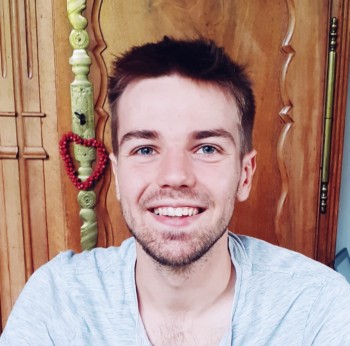
The teaching model at Jean Monnet University was by far the “healthiest” of all those I had experienced during my studies. Throughout these two years, the teaching and administrative staff demonstrated their total dedication to ensuring that their students succeeded. Every interaction – from the quality of the training material to the lecturers’ investment in the classroom and their readiness to pursue discussions outside of class time, and the overall commitment to students’ well-being – led me to realise that they really did want the best for us. This environment made an enormous difference to my perception of higher education and helped me find a sense of direction at a time when I really needed it.
Justine Mollen, Project Manager
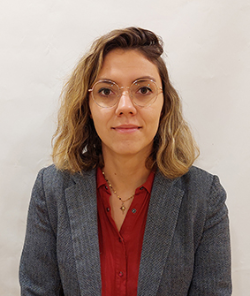 I'm currently working as a project manager for “Cities of Tomorrow”. This is a six-year programme, set up to advise and support municipalities and public bodies to encourage cooperation between municipalities with populations of fewer than 20,000 on issues such as housing, commerce, mobility, the circular economy, renewable energies and adapting to climate change. I previously worked as an economic development officer in charge of commerce and small businesses.
I'm currently working as a project manager for “Cities of Tomorrow”. This is a six-year programme, set up to advise and support municipalities and public bodies to encourage cooperation between municipalities with populations of fewer than 20,000 on issues such as housing, commerce, mobility, the circular economy, renewable energies and adapting to climate change. I previously worked as an economic development officer in charge of commerce and small businesses.
The internships during the second year of the Master of Regional Development (Territories and Transitions) were an opportunity to put into practice the theoretical aspects we studied as part of our course and to acquire new skills. The most important skill that I learned and that I use every day is project management. Having to work in a group on different projects is a great way to learn methodologies and be able to put them into practice. I also frequently make use of what I learned about economic development, industrial ecology, sustainable development, administrative law, and public procurement.
During the second year of my master’s I took part in a study trip to Ukraine. We conducted a local development project commissioned by the Council of Europe for the city of Zhovkva under the COMUS programme and the Faro Convention. This in-country immersion and the opportunity to meet local stakeholders really helped us produce ideas.
Yaovi Florentin Ametonou, studying for a PhD in Montreal
I am currently enrolled on the doctoral programme in economics at the University of Quebec in Montreal (UQAM Canada). The Master of Economics at Jean Monnet University is one of the best in France. The programme focuses on contemporary issues in economics. One of its major assets is its teaching staff. The lecturers are experienced, committed, excellent teachers and, above all, very approachable. The programme gave me a sound foundation in microeconomics, game theory and econometrics. Not only were we trained in the latest economic theories, but we had access to the IT equipment necessary to put into practice everything that we learned in class. The academic excellence and reputation of the lecturers were crucial to my admission to the doctoral programme, and they gave me invaluable support in achieving my ambition. Jean Monnet University is also one of the few universities offering a scholarship for academic excellence. This is crucially important in enabling top students to concentrate on their studies and progress even further.
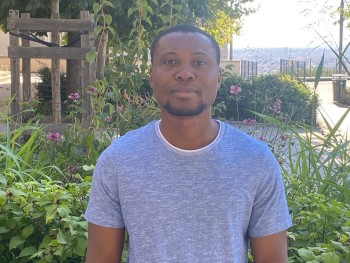
I also had the opportunity to participate in the Journées de l’Économie organised in Lyon. This is an interesting and valuable event for students, who can meet key actors in the world of economics and find out about the latest research.
Alain N'Ghauran, Consultant Economist
My name is Alain N’Ghauran and I’m from Côte d’Ivoire. I am currently working as a Consultant Economist in the Digital Development department at the World Bank.
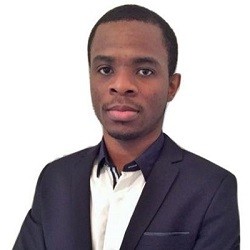 After my baccalaureate, in which I took the science option, I obtained a degree in economic science in Côte d’Ivoire. In 2013 I joined the Master of Economics programme offered by Jean Monnet University.
After my baccalaureate, in which I took the science option, I obtained a degree in economic science in Côte d’Ivoire. In 2013 I joined the Master of Economics programme offered by Jean Monnet University.
This programme gave me the technical and analytical skills required to conduct socio-economic studies and assessments. In addition, the modules on innovation gave me a sound understanding of the issues and challenges surrounding innovation policies in local economic development. My growing interest in innovation policies led me to continue my studies after the master’s degree, and I studied for a PhD (CIFRE thesis) in innovation economics at Jean Monnet University.
Alongside the skills acquired during my studies in Saint-Étienne, I especially appreciated the student support services at the Jean Monnet University. The help I was given to find my internship for the first year of the master’s programme was particularly valuable for me as a new arrival in France at that time. Thanks to the support of Jean Monnet University and the teaching staff, I also had the opportunity, during my doctoral studies, to undertake a research internship at Barcelona University.
Overall, the time I spent at Jean Monnet University was a very valuable and positive experience, both academically and personally. Saint-Étienne is an excellent option for any economics student looking for a comprehensive course and wanting to live in a small and friendly city.
Carolina Guevara, Economics Lecturer
I currently teach economics at undergraduate and master’s level at the National Polytechnic School in Quito and the National University in Loja, Ecuador.
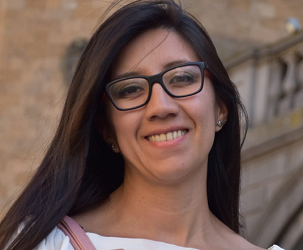 According to the IDEAS Institute, I'm one of Ecuador’s top economists! To get where I am today, I did a master’s degree and a PhD at Jean Monnet University, where I trained and developed skills that have proved highly useful in my career and for my research. One skill I learned is the ability to use scientific methods to explain economic activities. This has enabled me to publish academic articles and to give talks at conferences around the world. I studied at Jean Monnet University through a partnership agreement with a university in Ecuador, and I did my PhD as an international dual degree. These partnership arrangements with higher education establishments in Ecuador illustrate the international outlook of Jean Monnet University. As a foreign student, I was made to feel very welcome at the University and in Saint-Étienne. I made good friends and thoroughly enjoyed the city’s vibrant cultural scene.
According to the IDEAS Institute, I'm one of Ecuador’s top economists! To get where I am today, I did a master’s degree and a PhD at Jean Monnet University, where I trained and developed skills that have proved highly useful in my career and for my research. One skill I learned is the ability to use scientific methods to explain economic activities. This has enabled me to publish academic articles and to give talks at conferences around the world. I studied at Jean Monnet University through a partnership agreement with a university in Ecuador, and I did my PhD as an international dual degree. These partnership arrangements with higher education establishments in Ecuador illustrate the international outlook of Jean Monnet University. As a foreign student, I was made to feel very welcome at the University and in Saint-Étienne. I made good friends and thoroughly enjoyed the city’s vibrant cultural scene.
Rémi De Almeida, Innovation Financing Consultant
After a ‘classe préparatoire’ in science, I studied at Télécom Saint-Étienne and then joined the Master of Data Science and Innovation Management programme. This multidisciplinary programme in science, innovation and economics was an ideal preparation for a consultancy position in innovation financing.
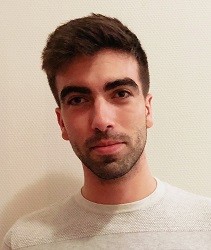 After gaining three years’ experience in this field, I'm now a Senior Innovation Financing Consultant. My master’s degree taught me the essential foundations and key aspects I needed to know about innovation and innovation financing. The numerous cross-disciplinary projects and work experience we completed were also extremely useful.
After gaining three years’ experience in this field, I'm now a Senior Innovation Financing Consultant. My master’s degree taught me the essential foundations and key aspects I needed to know about innovation and innovation financing. The numerous cross-disciplinary projects and work experience we completed were also extremely useful.
During my studies, I had the opportunity to undertake a two-month internship in Prague, for which I received a grant, and I also made the most of Saint-Étienne’s rich and varied student life. As President of the Federation of Student Associations in Saint-Étienne, I was able to see just how much the city has to offer.
Saint-Étienne is a great city for students – accommodation is cheap, the courses offered cover the full range of higher education options, and it’s a small, charming city with plenty of cultural activities. Saint-Étienne is also very well situated geographically – surrounded by open countryside and not far from Lyon.
Lisa Genévrier, first-year master’s degree student at Paris Dauphine University
My school and university career has been somewhat atypical. After a baccalaureate with special options in economics and social science, I decided to study economics at Jean Monnet University and to take the Political Science University Diploma offered by Jean Monnet University’s economics department in partnership with Sciences Po Lyon. This provided me with an additional grounding in politics and sociology. For me, this programme was a good compromise between a ‘classe préparatoire’ and a traditional university course. Class sizes were reasonable, the lessons highly structured and the lecturers very approachable. In the second year of the bachelor’s programme I chose the economics track, which I felt offered the best range of disciplines. The courses were demanding and stimulating and developed our analytical skills and ability to learn quickly. I’m currently in my first year of a Master of Marketing and Strategy at Paris Dauphine University.
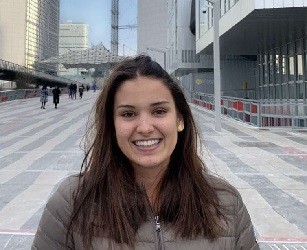 The Bachelor of Economics gave me key skills in two areas that are particularly useful to me today. Firstly, game theory, which is one of the specialisms of the economics research unit in Saint-Étienne. Having studied it helps me stand out from the crowd in my master’s year group. Game theory is an essential component of corporate strategy, which we are studying this year. I’m one of only a few students in my class who knows how to apply it. The classes I took in econometrics and statistics are also particularly useful today. We need to have a thorough grasp of the basics, which we apply when using software to analyse and extrapolate relevant results from large databases. We’re doing this at the moment in the context of our research dissertations. My training in economics has also helped me acquire – beyond academic knowledge – skills that are highly sought-after in the world of business, such as analytical skills, the ability to solve complex problems, and, especially, to continue to learn and keep up with new developments.
The Bachelor of Economics gave me key skills in two areas that are particularly useful to me today. Firstly, game theory, which is one of the specialisms of the economics research unit in Saint-Étienne. Having studied it helps me stand out from the crowd in my master’s year group. Game theory is an essential component of corporate strategy, which we are studying this year. I’m one of only a few students in my class who knows how to apply it. The classes I took in econometrics and statistics are also particularly useful today. We need to have a thorough grasp of the basics, which we apply when using software to analyse and extrapolate relevant results from large databases. We’re doing this at the moment in the context of our research dissertations. My training in economics has also helped me acquire – beyond academic knowledge – skills that are highly sought-after in the world of business, such as analytical skills, the ability to solve complex problems, and, especially, to continue to learn and keep up with new developments.
During the three years of the bachelor’s programme, I became particularly interested in development economics when I wrote my dissertation on ‘Industry and women’s health in Bangladesh’. It was fascinating to study the impact of a developing phenomenon (the expansion of the textile industry in Bangladesh) on the local population. I felt my work was actually useful, in that it could help decision-making on policies that affected vulnerable people.
I also became involved in various projects in the Economics department. During my second year, one of our projects was to set up and develop an association on a topic that interested us. Together with five of my classmates I set up an association called ‘En Quête de Partage’ which aimed to create a fun event bringing together the inhabitants of Saint-Étienne. In partnership with the shops and businesses around the Place Jean Jaurès, the main square in Saint-Étienne, we set up a giant Cluedo game. This project was a great experience for us. In fact, we won the award for the best entrepreneurial project in the bachelor’s programme. As well as that, I used to do sport once a week at one of the clubs organised by the Students’ Sports Association. This was a great way for me to let off steam and relax after classes. I did a variety of activities including gym workouts and self-defence.
Nordancia José, Strategic Monitoring Officer at Nomination (Paris)
I work as a Strategic Monitoring Officer at Nomination, an SME based in Paris that sells an online B2B prospecting and business accelerator platform. My role is to identify and process key events and developments concerning the companies and decision-makers that Nomination supports. I am heavily involved in the publication of different types of information, business indicators, media monitoring, etc., which we deliver daily to our clients.
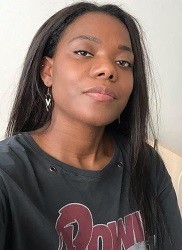 After leaving high school where I had taken special options in economics and social science, I enrolled on the Bachelor of Economic and Social Administration (AES) at the Institute of Business Administration (IAE) in Saint-Étienne. This multidisciplinary programme confirmed my ambition to continue studying economics.
After leaving high school where I had taken special options in economics and social science, I enrolled on the Bachelor of Economic and Social Administration (AES) at the Institute of Business Administration (IAE) in Saint-Étienne. This multidisciplinary programme confirmed my ambition to continue studying economics.
With the bachelor’s degree under my belt, I moved on to the Master of Economic Analysis and Policy, again at IAE Saint-Étienne. During the master’s I became particularly interested in economic intelligence, and joined the second year of the Master of Economic Intelligence and Innovation Management.
I really enjoyed this programme, which gave me all the required data and monitoring skills (how to set up a monitoring platform, process and analyse the data collected, and produce summaries and recommendations), and which introduced me to the economic importance of innovation. I did my final internship at Nomination in Paris, where I’m now employed on a permanent contract.
I really like the idea that my work – doing economic and technical analyses in different sectors of activity, responding to calls for tender, processing and analysing data, and writing reports – helps businesses to grow.
Saint-Étienne is a very pleasant place to live and there’s a good atmosphere. I was very happy there. Rents are low and there’s plenty to do – lots of sports and cultural activities, numerous bars and restaurants – and it’s easy to get out into the countryside where there are many hiking and walking trails.
Kevin Brun, Project Manager ‘Action Cœur de Ville’, Montbrison
I’ve been working as a Project Manager for Montbrison city council, running the ‘Action Coeur de Ville’ project since November 2018. My job involves coordinating projects in a wide variety of areas with the overall aim of enhancing the attractiveness of the city centre. This includes upgrading housing and the urban environment, promoting shops and businesses, planning public spaces, promoting our built heritage, and working on our mobility policy.
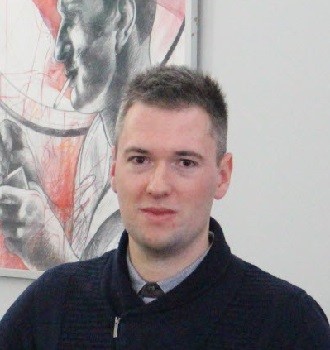 After a baccalaureate with special options in economics and social science, I took a bachelor’s degree in Business and Social Administration at Jean Monnet University followed by a Master of Regional Development (Territories and Transitions) which included one year on a traineeship contract with Saint-Étienne city council.
After a baccalaureate with special options in economics and social science, I took a bachelor’s degree in Business and Social Administration at Jean Monnet University followed by a Master of Regional Development (Territories and Transitions) which included one year on a traineeship contract with Saint-Étienne city council.
Learning to work in project mode was a particularly essential skill. The notion of teamwork was also developed throughout the course. This has proved to be essential and useful on a daily basis, whether when collaborating with other departments in the same organisation or working with outside partners. The programme provides a sound basis in economics and accounting, but the wide variety of subjects taught provides insight into other fields.
I also had the opportunity during my studies to work on a variety of projects, including, during the second year of my master’s, a field trip to Cres Island in Croatia. Saint-Étienne has a rich economic, industrial and administrative fabric and this is a real asset when it comes to looking for internships and employment after graduation. As a student, I especially enjoyed the events organised around the design sector, for which the city is well known, especially the Design Biennale.
For students, Saint-Étienne is an easily accessible and affordable city, as well as offering an extensive range of higher education courses. Its attractiveness is often under-estimated. In fact, it’s a very lively city set in a very pleasant environment. The region has a strong identity, and it’s easy to become quite attached to it.
Philippe Cachard, Director of Economic Development, Employment and Training, Saint-Étienne Métropole
I’m currently Director of Economic Development, Employment and Training at the Saint-Étienne Métropole. I am responsible for implementing the city’s economic development strategy (including employment, labour market integration and social enterprises), advising businesses on their development plans and helping them with any problems they encounter, advising local elected officials and the general management, managing a team (a staff of 22 across three departments), setting and managing budgets, developing partnerships and promoting local development and attractiveness.
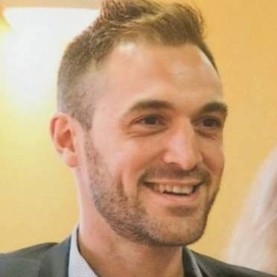 After high school, where I took special options in economics and social science, I studied for a technical diploma (BTS) in business with the aim of getting a job as soon as possible. Although I was able to use the skills I had learned in different private companies, after two years’ experience in wholesale and banking I felt I was stagnating and wanted to aim for a more challenging and satisfying career. I didn't have a specific field in mind, but since I had always been drawn to economics and the social sciences, I enrolled in a fairly broad bachelor’s programme (economic and social administration), which allowed me time to think about my future career plans. After meeting various people and undertaking a number of internships, I applied for the economics and management master’s programme at Jean Monnet University and for the second year opted for the Master of Regional Development (Territories and Transitions), which is offered as a traineeship contract. The traineeship brings students face to face with real-life situations and gives them an opportunity to develop interpersonal skills (policy, technique, customer-user relations, partnerships). Being supervised and taught by industry experts as well as lecturers gave me a comprehensive approach – combining theory and practice – to regional development.
After high school, where I took special options in economics and social science, I studied for a technical diploma (BTS) in business with the aim of getting a job as soon as possible. Although I was able to use the skills I had learned in different private companies, after two years’ experience in wholesale and banking I felt I was stagnating and wanted to aim for a more challenging and satisfying career. I didn't have a specific field in mind, but since I had always been drawn to economics and the social sciences, I enrolled in a fairly broad bachelor’s programme (economic and social administration), which allowed me time to think about my future career plans. After meeting various people and undertaking a number of internships, I applied for the economics and management master’s programme at Jean Monnet University and for the second year opted for the Master of Regional Development (Territories and Transitions), which is offered as a traineeship contract. The traineeship brings students face to face with real-life situations and gives them an opportunity to develop interpersonal skills (policy, technique, customer-user relations, partnerships). Being supervised and taught by industry experts as well as lecturers gave me a comprehensive approach – combining theory and practice – to regional development.
Among the advantages of studying in Saint-Étienne, I would highlight the opportunities for finding internships and jobs (it has the largest cluster of SMEs/SMIs in France after Paris), the Rue des Martyrs de Vingré and other vibrant night-life venues, the many cultural events (music festivals, the Design Biennale, museums, opera and theatre), opportunities for sport, low cost of living (including low rents), and the fact that it’s only 15 minutes from the open countryside, 30 minutes from Lyon and two hours from Paris. It’s a city that is constantly changing and developing – there’s always something new!
Pierre Pham-Trong, Financial Auditor at Mazars
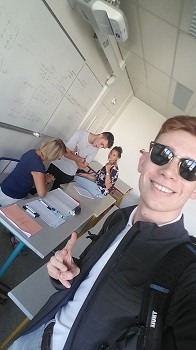 After obtaining a Bachelor of Economics from the Jean Monnet University, I enrolled on the Master of Finance and Strategy at Sciences Po Paris. My experience as a student in Saint-Étienne gave me the analytical skills and academic rigour that are particularly useful to me today.
After obtaining a Bachelor of Economics from the Jean Monnet University, I enrolled on the Master of Finance and Strategy at Sciences Po Paris. My experience as a student in Saint-Étienne gave me the analytical skills and academic rigour that are particularly useful to me today.
The Bachelor of Economics taught us how to use mathematical and statistical methods to think abstractly about concrete and complex problems.
These are skills I use today. In finance we also do a lot of modelling so there’s a strong link between the two disciplines. I would encourage anyone who enjoys maths to study economics. It’s a broad discipline and there’s something for everyone (urban economics, economics of education, economics and big data, financial economics, economics and psychology, etc.).
If you choose Jean Monnet University, you are choosing a student city with affordable accommodation but above all a programme which has the advantage of small classes and excellent lecturers who are very approachable and always willing to spend time going over anything we haven’t understood and to help us choose our specialisation.
Ruth Soufflet, Regional Director
I’ve been working as Regional Director for a global property management company for two years now, after obtaining a baccalaureate with special options in economics and social science, a Bachelor of Economics and Management and a Master of Regional Development (Territories and Transitions) at Saint-Étienne.
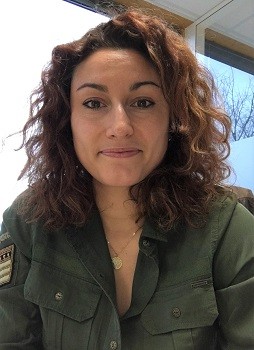
The programme was very well designed, very logical, with a multidisciplinary outlook that taught us to approach projects from a global perspective. For me, the keys to progressing in my career have been the ability to identify key issues and challenges, and to manage projects, as well as the skills and knowledge needed to predict and solve problems.
The work experience we did in the second year of the master’s programme was unforgettable! It was a fantastic personal and professional learning curve for the whole group. We learned from each other in a real-world work situation. It’s not just about getting your first experience of professional life; it often proves to be the springboard to your first permanent job.
Nowadays, you need to be able to constantly navigate and find a balance between flexibility, adaptability and your personal and professional convictions. We will probably exercise more than one profession during our career. The 360° vision taken by the Master of Regional Development (Territories and Transitions), and indeed all the courses I followed, is undeniably important.
I'm constantly coming into contact with people who have followed similar paths and now hold positions with a high level of responsibility in a variety of areas. This master’s programme really prepares students for a wide range of careers.

 Université Jean Monnet
Université Jean Monnet